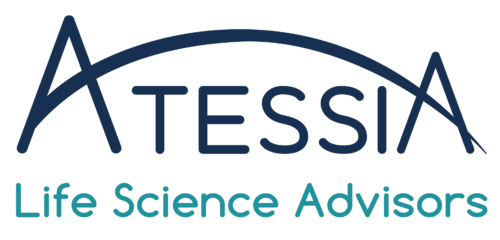Medical research is essential for the development of new treatments and the improvement of healthcare.
In France, this research is governed by strict regulations designed to protect participants and ensure the integrity of human subjects. The Jardé Law, adopted in March 2012 and enforced since November 2016, is the legal framework for research involving human subjects (RIPH).
It should be noted that clinical trials involving medicinal products are primarily regulated by the EU Clinical Trials Regulation (EU) 536/2014 (CTR), which came into effect on January 31, 2022. This regulation replaces Directive 2001/20/EC. As a reminder, any clinical trial with at least one active investigative site in France as of January 31, 2025, must be transitioned to the Clinical Trials Information System (CTIS) by its sponsor before this date. For clinical trials involving medicinal products, the Jardé Law introduces additional requirements to be considered. Other provisions include compliance with CNIL (GDPR), and procedures related to the use of medicinal products composed wholly or partially of genetically modified organisms (GMOs).
Depending on whether the research concerns a medicinal product or another health product, such as medical devices (clinical investigation) and in vitro diagnostic medical devices (performance study), cell therapy preparations, tissues, organs, labile blood products (LBPs), or even research on dietary supplements or cosmetics, the applicable regulations vary.
What is the Jardé Law?
The Jardé Law, named after Deputy Olivier Jardé, is a regulation that governs the conditions under which research involving human participants can be conducted. It replaces the Huriet-Sérusclat Law of 1988 and aims to enhance the protection of participants while facilitating the conduct of clinical research.
The main reference texts include:
– The Jardé Law, Law No. 2012-300 of March 5, 2012, relating to research involving human subjects.
– The ordinance, known as the “modified Jardé Law,” relating to research involving human subjects.
– Decree No. 2016-1537 of November 16, 2016, relating to research involving human subjects.
– The Public Health Code (Articles L1121-1 to L1126-11), which details the specific obligations for different categories of research.
Classification of RIPH
Research organized and conducted on human beings with the aim of developing biological or medical knowledge is referred to as “research involving human subjects” (RIPH). There are three types of RIPH:
| Category | Legal Provisions | Framework |
| Category 1 Interventional research involving a risk to participants | Articles L1121-1 and L1121-3 of the Public Health Code (CSP) | These studies require prior authorization from the ANSM (French National Agency for Medicines and Health Products Safety) and a favorable opinion from a Committee for the Protection of Persons (CPP). |
| Category 2: Interventional research with minimal risks and constraints | Article L1121-2 of the CSP | These studies require a favorable opinion from a CPP, but not authorization from the ANSM. |
| Category 3: Non-interventional research | Article L1121-1-1 of the CSP | These involve observational studies where the risks are absent or negligible. A favorable opinion from a CPP is necessary, but these studies do not require authorization from the ANSM. |
What Are the Implications for the Industry?
Participant Information
The objective of the Jardé Law is to ensure the safety of participants. Special attention is given to the notions of informed consent and clear information.
Manufacturers must ensure that participants fully understand the stakes, procedures, risks, and potential benefits of the study. These requirements are detailed in Articles L1122-1-1 to L1122-2 of the Public Health Code (CSP).
Information for the ANSM
Manufacturers must determine the category of their research during the design phase and ensure they obtain the necessary authorizations. Notably, for RIPH involving medicinal products, they cannot be classified as RIPH 2. An order specifies the criteria to remain within the scope of RIPH 2. For category 1 RIPH, this involves submitting a complete dossier to the ANSM and obtaining a favorable opinion from a CPP (Article L1121-4 of the CSP). Since 2022, for clinical trials on medicinal products, the CTR requires submission through the CTIS platform. Proper classification of your RIPH is a prerequisite for any procedure.
Interactions with CPPs and the ANSM
CPPs are French ethics committees. Interactions with CPPs and the ANSM are essential for the validation of research projects. Good communication and submission of complete dossiers are necessary, in accordance with Articles L1123-6 and L1123-7 of the Public Health Code.
Procedures
Before submitting the authorization request dossier (initial authorization and substantial modification) and/or human research opinion request, or routine care research, sponsors must obtain an IDRCB registration number for the research. This number identifies each research conducted in France. For a biomedical research authorization and opinion request concerning a medicinal product for human use, sponsors must obtain a research registration number in the European CTIS database (formerly: EudraCT).
Subsequently, sponsors will electronically submit the biomedical research authorization and/or opinion request dossier to the ANSM and/or CPP, in accordance with the current orders setting the dossier formats for each type of research. Various “Notices to Sponsors” guide these procedures according to the situation.
Conclusion
The Jardé Law thus ensures the safety of participants in clinical research in France.
For health manufacturers, understanding and complying with these regulations is not only a legal obligation but also a guarantee of the quality of the data generated, particularly for use in a Marketing Authorization Application (MAA) dossier.
By integrating the requirements of the Jardé Law into their processes, manufacturers contribute to the development of innovative treatments while ensuring high ethical standards, in accordance with French regulations on this matter.
Atessia can assist you in implementing these processes with its expertise in clinical trials.
Article written by Zarine RAMJAUNY, Legal Consultant

